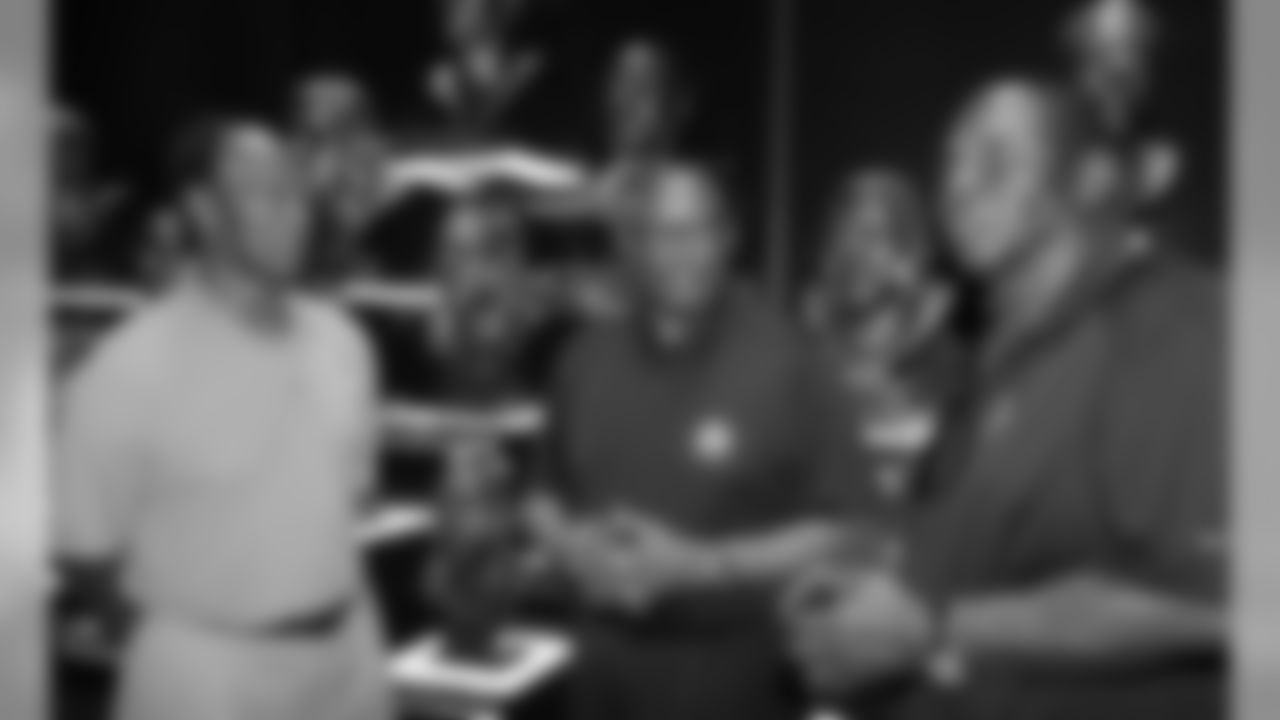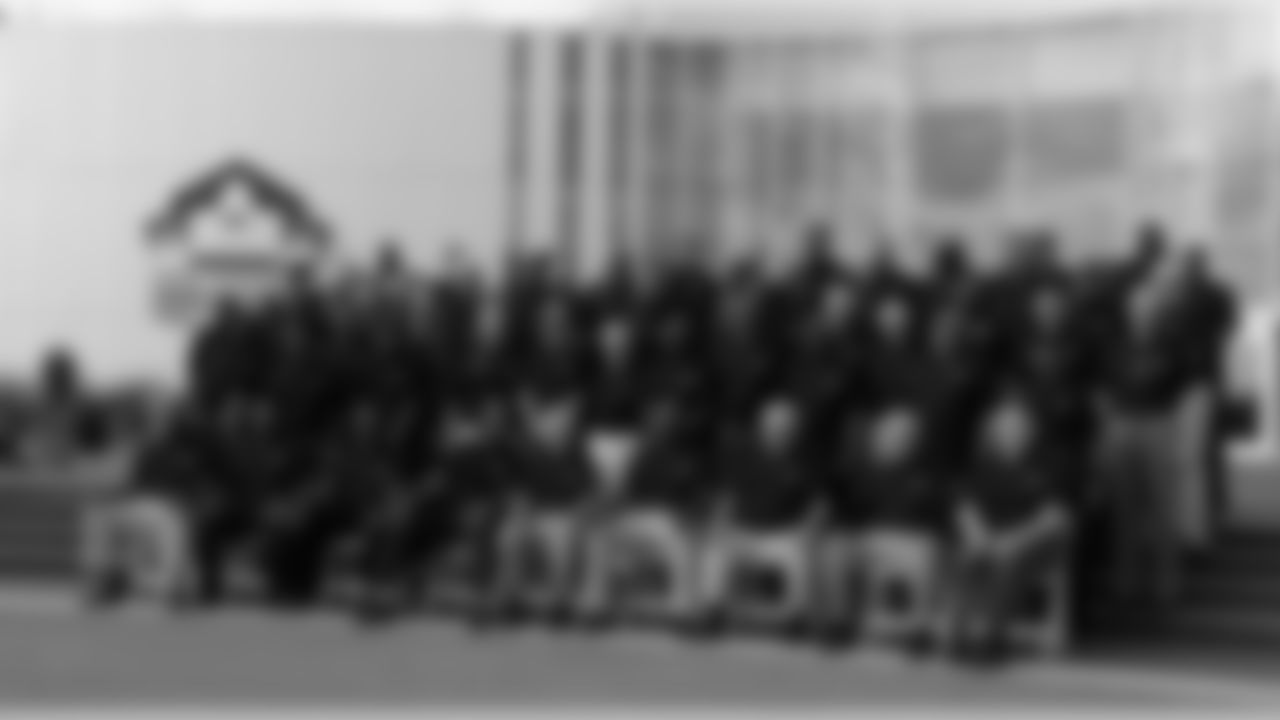CANTON, Ohio — As Broncos Ring of Famer Tom Jackson prepared to receive the 2015 Pete Rozelle Radio-Television Award at the Pro Football Hall of Fame, he recalled the moment that he thought would cost him his job with ESPN after only a year. Rather, it encapsulated the humor, the personality and the devotion that explains why he was so successful.

On Jan. 31, 1988, Jackson made his way to ESPN's Super Bowl post-game set in San Diego. Muddied, sopping wet and with cut-up feet, he was sure Super Bowl XXII would be the last time he covered any football game for ESPN.
Their set was on the rooftop of a building near the stadium so that it would be the backdrop behind them during the show. Jackson had two options: Leave at halftime in the van ESPN had arranged for them and watch the game on TV from the set, or stay to watch the game live and find his own way back before the show.
"It's only about a quarter mile as the crow flies," his producer told him, "but I need to tell you there's a small creek that's in between you and the set. It's not deep but you might have to cross it in order to get back to the set on time to get ready for the show."
Jackson stayed for the entire game to watch his former team receive a 42-10 dismantling and then prepared to make what he expected to be a short trek with a minor inconvenience.
He arrived at the creek and estimated the creek to be about 10 feet wide. In the darkness it was impossible to get a sense of the water's depth, but this was Jackson's only route. He took off his socks and shoes, rolled up his pant legs and cautiously ventured a foot into the water.
Guh-gloop.

The first step was indeed a doozy. The 5-foot-11-inch former linebacker sank immediately into 6 feet of water. Jackson emerged on the other side of what was actually the San Diego River and crawled up the edge, cutting up his feet in the process.
Eventually he arrived at the set. "As I got there, a production assistant sees me and they went Oh my God," Jackson says. They got him dressed in new clothes to get ready for the show, but the combination of his body heat and the cold water produced a steam. His on-air partner, Chris Berman, instead did the first segment on his own. Meanwhile, Jackson—wearing Berman's extra shirt—cooled down until he was ready.
"Joining me is Tom Jackson," Berman began the second segment. "And Tom, the Denver Broncos lost another Super Bowl, this one by a wider margin than the ones they lost before. This must have been a game that made you feel like jumping into a lake."
Jackson thought that was a wrap on his time with ESPN, without a doubt. "They're not going to keep anybody who can't even make his way to the set without falling in a creek!" Jackson remembers thinking. "So I thought I was going to spend one year with ESPN and then move on to whatever else. They saw fit to keep me."
Hall of Fame Broncos running back Floyd Little and two of his best friends and former teammates, Tom Jackson and Billy Thompson, toured the Pro Football Hall of Fame. (All photos by Ben Swanson)




















Of course they saw fit to keep him. The camaraderie with Berman, his personality and knowledge of the game were why they wanted him in the first place when he auditioned a year earlier in 1987.
ESPN flew Jackson to its Bristol, Conn. headquarters for the audition. He already had a job offer on the table from NBC, but he wanted to see what this fledgling sports network had to offer.
Prior to retirement Jackson had gained television experience working on The Bronco Beat and The Denver Huddle — two local sports shows that he appeared on for two years apiece. Little did he know this would be a springboard for a historic broadcasting career.
"I always tell young people: You don't know who's watching your work," Jackson now says.
Someone at NBC was watching his, and once Jackson retired in 1987 they didn't hesitate to bring him to New York City for a test run about 10 days after his retirement. His audition then went so well that they pulled him into another room and offered him a contract on the spot. But Jackson wanted time to think about the decision.
"This is what my dad used to tell me: 'When you've got a big decision to make that's going to be kind of life-changing, if you can take a week to think about it, it would be a great thing,'" Jackson said.

While he took that week, ESPN called and brought him in for its own audition with Berman there as the on-screen partner.
"Chris and I always like to say that something clicked, whatever that was," Jackson said with a smile. "And that was 28 years ago and a few Emmys ago and a Pete Rozelle Award."
The combination of Jackson and Berman has been a touchstone for countless football fans. Their programs NFL Countdown *and *NFL PrimeTime were the foundation for NFL coverage and what the NFL media landscape looks like today.
In particular, Jackson's impact resonates as a leader in his field as one of the first African-American sports broadcasters on national television. Former cornerback Irv Cross had broken that barrier in 1971 for CBS Sports, but Jackson helped the avenue grow even further.
"Irv was the pioneer," Jackson said. "Irv Cross did it, did it well, had great impact on the viewing audience and paved the way for somebody like me to get a shot and get on TV. I do think, because I hear it so much from the younger guys, that in my own way then I took that next step and so that the guys now when they retire and they have an interest in TV, they kind of see it as an avenue they know they can go down. They don't have to wonder about it."
Now Jackson's name joins Cross' on the list of Pete Rozelle Radio-Television Award winners.
The magnitude of the that realization was not lost on Jackson. He read through the list of previous winners after the Pro Football Hall of Fame called to notify him the he was the 27th winner of the award.
"I shared [the news] with my wife and my daughters and then I went into my office," Jackson said. "I was familiar with part of the list but I went into my office just to take a look at the entire list. That's when you get humbled and that's when you get overwhelmed and that's when you wonder how the hell you got your name on the list. That's about the time that you look and you go 'Pat Summerall, Chris Schenkel, Ed Sabol—who started NFL Films—Dan Dierdorf, Ray Scott, Frank Gifford, John Madden.' That's when it gets a bit overwhelming, but I'm honored beyond belief."









